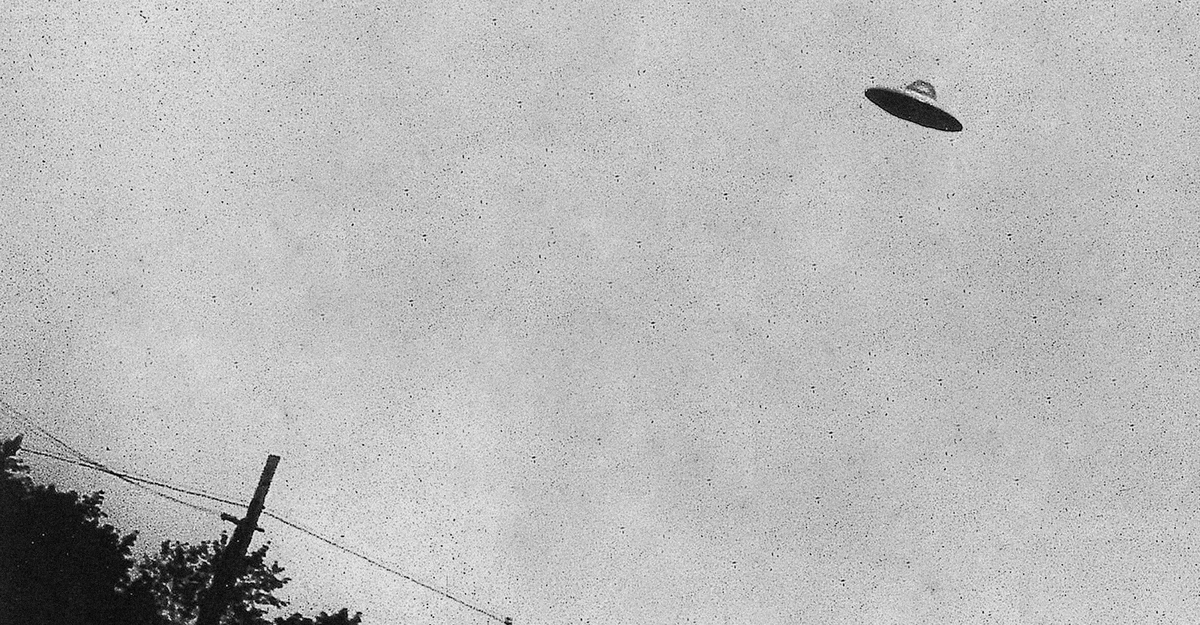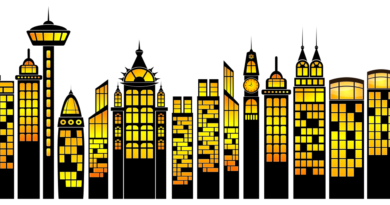Biden’s very un-Hollywood UFO speech

The question is not whether aliens exist—I’m firmly in the “Hell yeah, they do!” camp—but rather when we’ll have enough hard evidence to end the decades-long debate over said existence.
Believers in UFOs have gotten some tantalizing clues over the past few years. Those 2019 New York Times videos of zig-zagging, Tic Tac–like vessels with curious propulsion are always worth a rewatch. Likewise, the huge New Yorker feature by Gideon Lewis-Kraus, “How the Pentagon Started Taking UFOs Seriously,” is pretty much required reading before you offer a qualified opinion on the issue. As my colleague Marina Koren wrote yesterday, UFO sightings are indeed getting more frequent, even if the data don’t necessarily scream ALIENS!
Nevertheless, it’s not just you; the events of the past week have felt different. Our military’s targeted takedown of multiple aerial objects over North America brought UFOs back to the forefront of our national conversation—enough to elicit a presidential address on the matter this afternoon.
Hollywood has primed us for what to expect from our commander in chief ahead of an interstellar crisis. (Think Bill Pullman’s predawn megaphone pump-up speech before the Independence Day climax, or Morgan Freeman somberly telling his Deep Impact constituents that, yes, the comet is coming, and millions of you are screwed.) Today, sadly, President Joe Biden did not unveil the grand truth about UFOs with clasped hands on the Resolute desk, nor did he march down the dramatic carpeted corridor leading to the East Room for an Osama bin Laden–is-dead-style surprise. Like much of the Biden presidency, today’s event had a decidedly un-Hollywood feel to it. In fact, the speech wasn’t in the White House at all but next door, in the Eisenhower Executive Office Building’s sterile and cacophonous South Court Auditorium. It felt less like a triumphant milestone in our shared knowledge of the universe and more like an inoffensive midday presentation at an auto show.
Biden began by explaining that the U.S. and Canadian militaries were still working to recover the debris from the three recently downed somethings. “We don’t yet know exactly what these three objects were,” he said, tantalizingly. “But nothing right now suggests they were related to China’s spy-balloon program or that they were surveillance vehicles from any other country.”
This is when the aliens-are-real crowd’s ears momentarily perked up. A sentence later, they perked back down.
“The intelligence community’s current assessment is that these three objects were most likely balloons tied to private companies, recreation, or research institutions studying weather or conducting other scientific research,” Biden said. He rejected the idea that there has been a “sudden increase in the number of objects in the sky” and instead offered that sightings have increased because our radar capabilities have increased. To be sure, he did not say the word aliens.
Indeed, Biden seemed less interested in rallying us for alien warfare and more intent on calming U.S.-China relations. As the speech ended, a reporter asked Biden whether his family’s business relationships overseas have compromised his ability to deal with China. Another yelled that the recent shootdowns have been criticized as an “overreaction.” For a moment, Biden appeared ready to respond, but he decided otherwise.
The raison d’être of his speech today—government transparency—ended up dominating online chatter in the hours that followed, for what conservatives (and some UFO enthusiasts) saw as a glaring lack of it.
And so, the question remains: What were those three “aerial objects” intentionally downed following the Chinese surveillance balloon? If movies have taught us anything, it’s that the government is currently building a massive underground ark where a small percentage of the population can stave off an impending large-scale intergalactic attack, meaning today’s press conference was merely a way of buying more time. If logic has taught us anything, it’s that the truth is more prosaic, and one of the objects in question may belong to a midwestern club of balloon enthusiasts currently missing a balloon.
This article has been archived for your research. The original version from The Atlantic can be found here.


